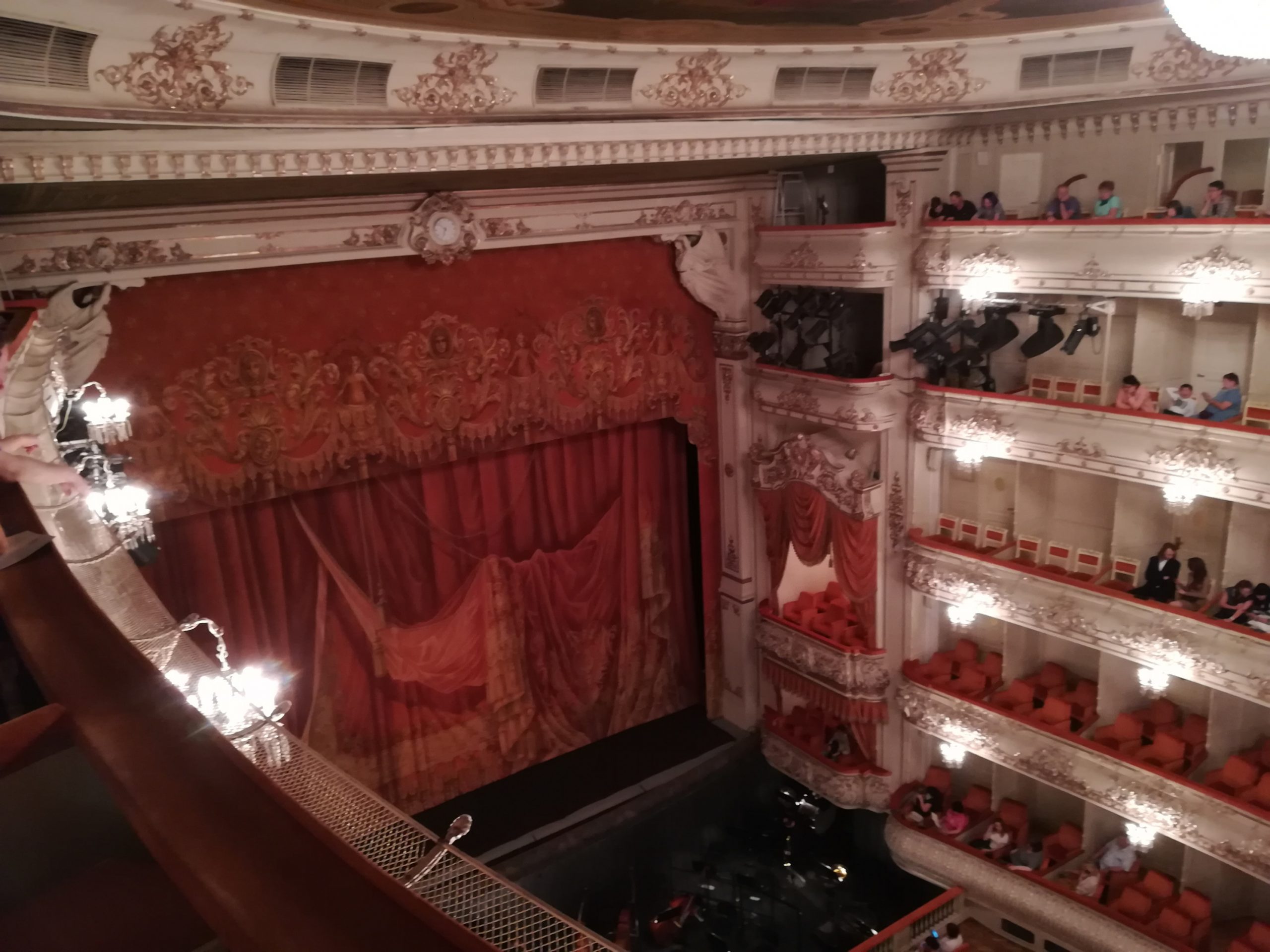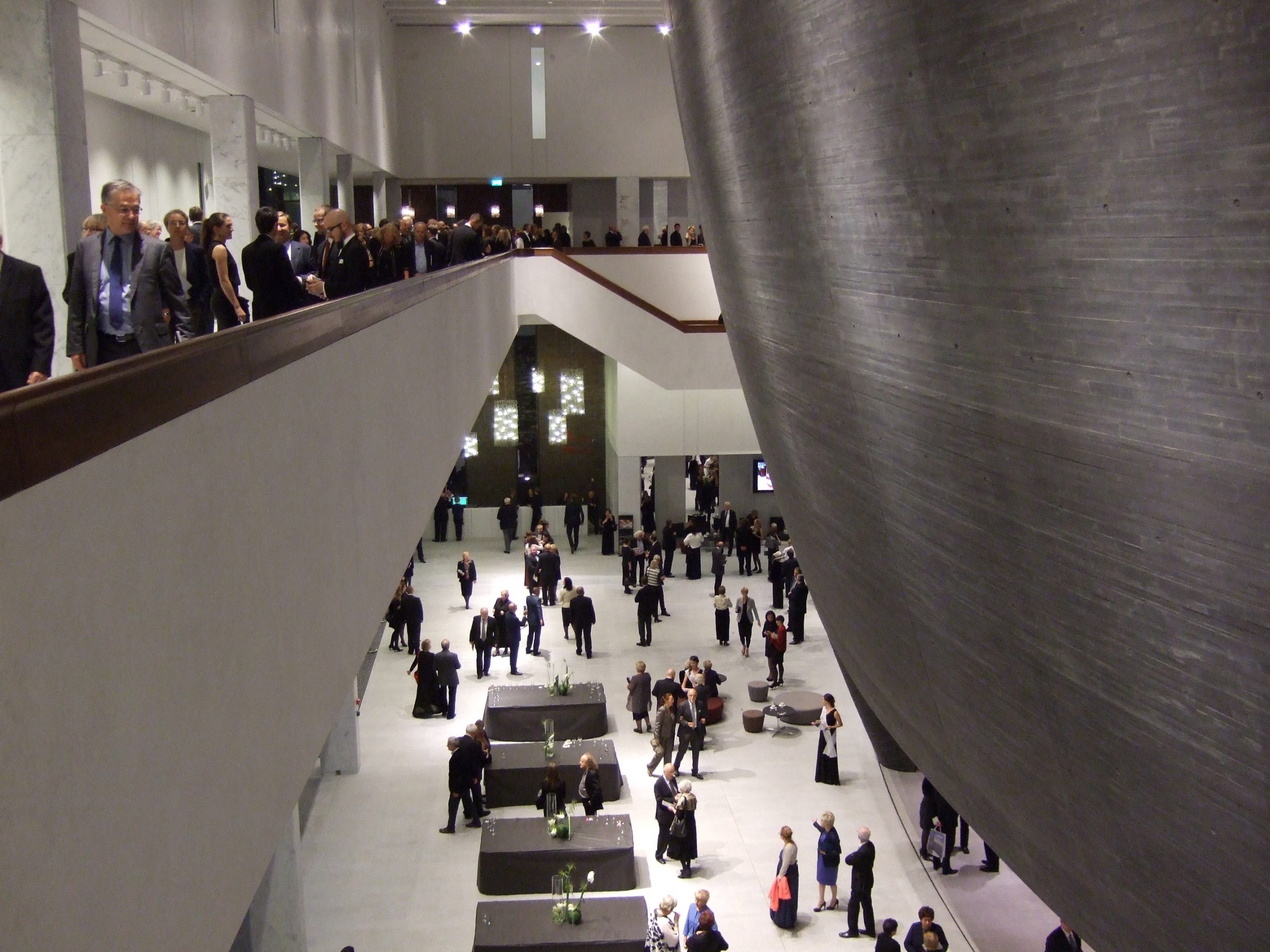Wie viel Cancel Culture verträgt die Demokratie?

© Marco Frei
BSZ, 5.1.2023
Viel Wirbel in München um ein in der Regie kritisch kontextualisiertes «Blackfacing» in einer Neuproduktion von Ernst Kreneks Oper «Johnny spielt auf» am Gärtnerplatz-Theater und um ein vermeintlich antisemitisches, in Israel ausgezeichnetes und gefördertes Theaterstück von Wajdi Mouawad am Metropoltheater: Wie gut gemeinte, aber fehlinformierte Empörung und die Reaktionen darauf in Politik und Kultur die Freiheit der Kunst konterkarieren.
Lots of fuss in Munich about a critically contextualized «blackfacing» in a new production of Ernst Krenek’s opera «Johnny spielt auf» at the Gärtnerplatz Theatre and about a supposedly anti-Semitic play by Wajdi Mouawad at the Metropol Theater, which has received awards and support in Israel: How well-intentioned but misinformed outrage and the reactions to it in politics and culture are counteracting the freedom of art.
Scandalo a Monaco per un «blackfacing» contestualizzato criticamente in una regia dell’opera di Ernst Krenek «Johnny spielt auf» al Teatro Gärtnerplatz e per uno spettacolo presumibilmente antisemita di Wajdi Mouawad al Teatro Metropol, che ha vinto premi e finanziamenti in Israele: Come la proteste ben intenzionata ma disinformata e le reazioni ad essa nella politica e nella cultura contrastano la libertà dell’arte.
Es findet gerade eine darwinsche Selektion statt
NZZ, 10.3.2021
Der Bratschist und Hochschullehrer Nils Mönkemeyer über die möglichen Folgen der Corona-Pandemie für den musikalischen Nachwuchs.
Nils Mönkemeyer discusses the possible consequences of the Covid pandemic for young musicians.
Nils Mönkemeyer parla delle possibili conseguenze della pandemia per i giovani musicisti.
Wie Schostakowitsch mit Beethoven rang – und Stalin austrickste
NZZ, 6.2.2021
Nachtrag zum Beethoven-Jubiläum: Die Bedeutung der Schriften des Musiksoziologen Paul Bekker für die Beethoven-Pflege in der Sowjetunion, die Entwicklung einer sowjetischen Sinfonik und die für die doppelbödige Musik von Dmitri Schostakowitsch.
Addendum to the Beethoven anniversary: The significance of the writings of music sociologist Paul Bekker for the cultivation of Beethoven in the Soviet Union, the development of Soviet symphonic music and the ambiguous music of Dmitri Shostakovich.
Aggiunta all’anniversario di Beethoven: L’importanza degli scritti del sociologo musicale Paul Bekker per la cura dela musica di Beethoven nell’Unione Sovietica, lo sviluppo della musica sinfonica sovietica e la musica ambigua di Dmitri Šostakovič.
Ist Bayern noch ein Kulturstaat?
BSZ, 25.9.2020
Wie die im deutschen und europäischen Vergleich überstrengen Kultur-Auflagen der bayerischen Staatsregierung in der Pandemie samt eklatanter Ungleichbehandlung gegenüber anderen Branchen den in der Verfassung Bayerns verankerten «Kulturstaat Bayern» nicht nur gefährden, sondern nachhaltig zu zerstören drohen.
How the Bavarian state government’s cultural regulations during the pandemic – excessively strict compared to Germany and Europe – and the blatant unequal treatment compared to other sectors, threaten to destroy the «Cultural State of Bavaria» enshrined in Bavaria’s constitution.
Come le eccessive esigenze culturali del governo bavarese durante la pandemia – rispetto agli standard tedeschi ed europei, insieme alla palese disparità di trattamento rispetto ad altri settori – minacciano di distruggere lo «Stato di cultura della Baviera» sancito dalla Costituzione bavarese.
Unbekanntes im Vertrauten
PianoNEWS, 5/2020
Neue Klavierwerke von Dmitri Schostakowitsch: Welchen künstlerischen Wert haben die Entdeckungen? Welche Rolle spielen sie im Schaffen Schostakowitschs? Eine Erörterung mit Reflexionen der Pianistin Yulianna Avdeeva, des Komponisten und Schostakowitsch-Biografen Krzysztof Meyer sowie der Schostakowitsch-Archivarin Olga Digonskaya.
New piano works of Dmitri Shostakovich: What artistic value do these discoveries have? What role do they play in Shostakovich’s oeuvre? A discussion with reflections by pianist Yulianna Avdeeva, composer and Shostakovich biographer Krzysztof Meyer, and Shostakovich archivist Olga Digonskaya.
Nuove opere per pianoforte di Dmitri Shostakovich: Che valore artistico hanno le scoperte? Quale valore hanno nel lavoro di Shostakovich? Un dibattito con riflessioni della pianista Yulianna Avdeeva, del compositore e biografo di Shostakovich Krzysztof Meyer e dell’archivista di Shostakovich Olga Digonskaya.
Urgewalt mit Erschütterung
PianoNEWS, 3/2020
Nachtrag zum 100. Geburtstag von Galina Ustwolskaya: Wie äußert sich das innere Exil der 2006 verstorbenen russisch-sowjetischen Komponistin in ihrem Klavierwerk? Welche Bedeutung hat das Klavier in ihrem Schaffen? Was zeichnen die sechs Klaviersonaten aus? Eine Analyse mit Reflexionen der Pianistin Sabine Liebner und von Ustwolskaya selbst.
Addendum to the 100th birthday of Galina Ustvolskaya: How does the inner exile of the Russian-Soviet composer, who died in 2006, manifest itself in her piano works? What significance does the piano have in her oeuvre? What are the distinguishing features of the six piano sonatas? An analysis with reflections by pianist Sabine Liebner and Ustvolskaya herself.
Addendum al centesimo di Galina Ustvolskaya: Come si manifesta l’esilio interiore della compositrice russo-sovietica, morta nel 2006, nelle sue opere per pianoforte? Che significato ha il pianoforte nel suo lavoro? Quali sono le caratteristiche delle sei sonate per pianoforte? Un’analisi con riflessioni della pianista Sabine Liebner e di Ustvolskaya.
Gibt es eine Krise der Klassik?

© Marco Frei
Donaukurier, KVI-Beilage 2017
Warum das Klassik-Publikum schon immer eher überaltert war und die eigentliche Gefahr von der Reduktion des Musikunterrichts an den Schulen und von kulturpolitischer Ignoranz ausgeht; warum sich das Konzert als Ritual erst um 1850 etablierte und heutige Mischformate mit Event-Charakter bis 1850/60 die Regel waren; was Franz Liszt mit seinen «Kultur-Olympiaden» im Sinn hatte und wie wichtig soziale, aktuelle Relevanz ist.
Why the classical music audience has always been rather aging and the real danger comes from the reduction of music instruction in schools and from cultural-political ignorance; why the concert as a ritual only became established around 1850 and today’s mixed formats with an event character were convention until 1850/60; what Franz Liszt had in mind with his «Cultural Olympics» and how important social, current relevance is.
Perché il pubblico della musica classica è sempre stato piuttosto invecchiato e il vero pericolo viene dalla riduzione dell’insegnamento musicale nelle scuole e dall’ignoranza politico-culturale; perché il concerto come rito si affermò intorno al 1850 e gli odierni formati misti a carattere di evento furono la regola fino al 1850/60; cosa aveva in mente Franz Liszt con le sue «Olimpiadi della Cultura» e quanto sia importante l’attualità sociale.
Dem Leben abgelauscht
NZZ, 17.9.2017
Zum 100. Geburtstag von Isang Yun: Das Leben des Komponisten zwischen Nord- und Südkorea, sein Exil in Berlin, und die Aktualität seiner Vita und seiner Musik – Eine Spurensuche beim Yun-Festival in seiner Geburtsstadt Tongyeong.
On the 100th birthday of Isang Yun: The life of the composer between North and South Korea, his exile in Berlin, and the relevance of his life and his music – a search for traces at the Yun Festival in his hometown of Tongyeong.
Il centesimo di Isang Yun: La vita del compositore tra Corea del Nord e Corea del Sud, il suo esilio a Berlino e l’importanza della sua vita e della sua musica. Una ricerca delle tracce allo Yun Festival nella sua città natale di Tongyeong.
Spielarten des Grotesken
Opernwelt, Jahrbuch 2015
Mit «Esame di mezzanotte» ist Lucia Ronchetti eine genuine Oper jenseits postmoderner Beliebigkeit gelungen.
With «Esame di mezzanotte», Lucia Ronchetti has created a genuine opera that goes beyond postmodern arbitrariness.
Con «Esame di mezzanotte» Lucia Ronchetti ha creato un’autentica opera che va oltre l’arbitrarietà postmoderna.
Das Homogene im Heterogenen
PianoNEWS, 4/2015
Kristian Bezuidenhout über das moderne und das historisch informierte Klavierspiel am Beispiel Mozarts, Originalklang und Klangrede, Fingerlegato und Pedal, Synthese von Cembalo und modernem Fügel.
Kristian Bezuidenhout on modern and historically informed piano playing with Mozart as an example, original sound and sound speech, finger legato and pedal, synthesis of harpsichord and modern grand piano.
Kristian Bezuidenhout sul suonare il pianoforte nello stile moderno e storicamente informato usando Mozart come esempio, suono originale e discorso sonoro, legato con le dita e pedale, sintesi di clavicembalo e pianoforte moderno.